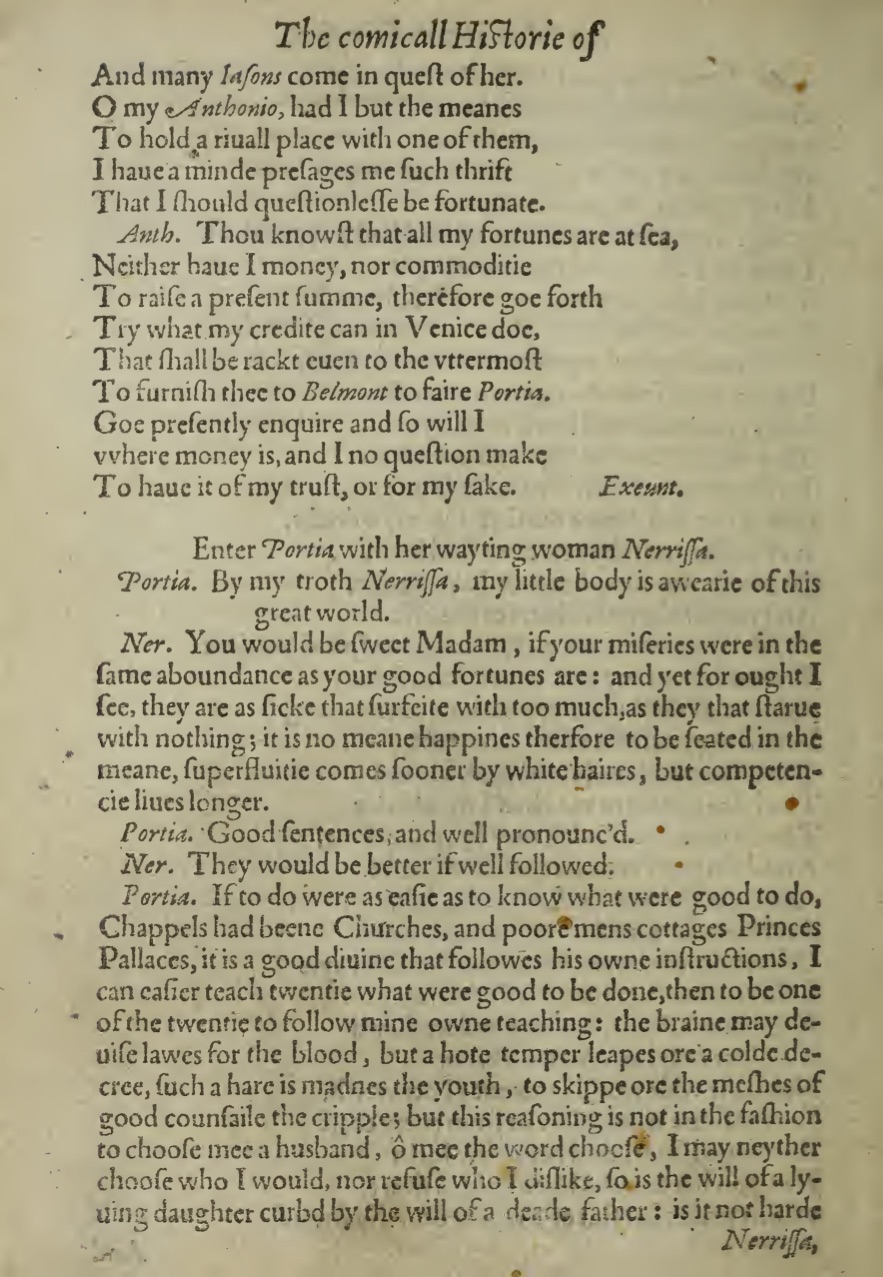And many Iasons come in quest of her.
O my Anthonio, had I but the meanes
To hold a riuall place with one of them,
I haue a minde presages me such thrift
That I should questionlesse be fortunate.
Anth. Thou knowst that all my fortunes are at sea,
Neither haue I money, nor commoditie 1
To raise a present summe, therefore goe forth
Try what my credite can in Venice doe,
That shall be rackt euen to the vttermost
To furnish thee to Belmont to faire Portia.
Goe presently enquire and so will I
where money is, and I no question make
To haue it of my trust, or for my sake. Exeunt.
Enter Portia with her wayting woman Nerrissa.
Portia. By my troth Nerrissa, my little body is awearie of this
great world.
Ner. You would be sweet Madam, if your miseries were in the
same aboundance as your good fortunes are: and yet for ought I
see, they are as sicke that surfeite with too much, as they that starue
with nothing; it is no meane happines therfore to be seated in the
meane, superfluitie comes sooner by white haires, but competen-
cie liues longer.
Portia. Good sentences, and well pronounc'd.
Ner. They would be better if well followed.
Portia. If to do were as easie as to know what were good to do,
Chappels had beene Churches, and poore mens cottages Princes
Pallaces, it is a good diuine that followes his owne instructions, I
can easier teach twentie what were good to be done, then to be one
of the twentie to follow mine owne teaching: the braine may de-
uise lawes for the blood, but a hote temper leapes ore a colde de-
cree, such a hare is madnes the youth, to skippe ore the meshes of
good counsaile the cripple; but this reasoning is not in the fashion
to choose mee a husband, ô mee the word choose, I may neyther
choose who I would, nor refuse who I dislike, so is the will of a ly-
uing daughter curbd by the will of a deade father: is it not harde
Nerissa,
